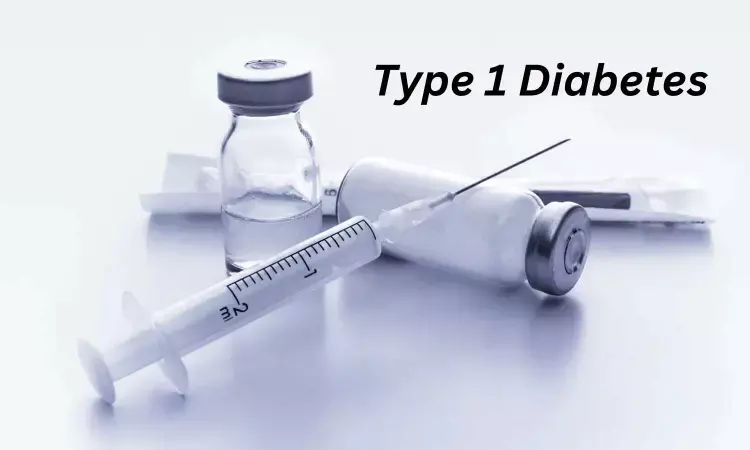- Home
- Medical news & Guidelines
- Anesthesiology
- Cardiology and CTVS
- Critical Care
- Dentistry
- Dermatology
- Diabetes and Endocrinology
- ENT
- Gastroenterology
- Medicine
- Nephrology
- Neurology
- Obstretics-Gynaecology
- Oncology
- Ophthalmology
- Orthopaedics
- Pediatrics-Neonatology
- Psychiatry
- Pulmonology
- Radiology
- Surgery
- Urology
- Laboratory Medicine
- Diet
- Nursing
- Paramedical
- Physiotherapy
- Health news
- Fact Check
- Bone Health Fact Check
- Brain Health Fact Check
- Cancer Related Fact Check
- Child Care Fact Check
- Dental and oral health fact check
- Diabetes and metabolic health fact check
- Diet and Nutrition Fact Check
- Eye and ENT Care Fact Check
- Fitness fact check
- Gut health fact check
- Heart health fact check
- Kidney health fact check
- Medical education fact check
- Men's health fact check
- Respiratory fact check
- Skin and hair care fact check
- Vaccine and Immunization fact check
- Women's health fact check
- AYUSH
- State News
- Andaman and Nicobar Islands
- Andhra Pradesh
- Arunachal Pradesh
- Assam
- Bihar
- Chandigarh
- Chattisgarh
- Dadra and Nagar Haveli
- Daman and Diu
- Delhi
- Goa
- Gujarat
- Haryana
- Himachal Pradesh
- Jammu & Kashmir
- Jharkhand
- Karnataka
- Kerala
- Ladakh
- Lakshadweep
- Madhya Pradesh
- Maharashtra
- Manipur
- Meghalaya
- Mizoram
- Nagaland
- Odisha
- Puducherry
- Punjab
- Rajasthan
- Sikkim
- Tamil Nadu
- Telangana
- Tripura
- Uttar Pradesh
- Uttrakhand
- West Bengal
- Medical Education
- Industry
Earlier Onset of Puberty on the rise among Children with Type 1 Diabetes

A recent study conducted by the German Diabetes Prospective Follow-up (DPV) registry found the trends and factors associated with the onset of puberty in children with Type 1 Diabetes (T1D). The findings were published in Diabetes, Obesity and Metabolism Journal.
The study analyzed data from 13,127 children aged 6 to 18 years, revealed some concerning findings. Over the period from 2000 to 2021, the study discovered a significant trend towards earlier puberty in both girls and boys with T1D. In 2000, the onset of thelarche (Tanner stage B2) in girls occurred at an average age of 11.48 years, but by 2021, it had decreased to 10.93 years. In boys, gonadarche (Tanner stage G2/testicular volume >3 mL) decreased from an average age of 12.62 years in 2000 to 11.98 years in 2021. These findings indicate a clear shift towards earlier puberty, which could have far-reaching implications for the management of T1D in children.
The study's regression analysis identified several factors associated with the early onset of puberty in children with T1D. It was found that longer diabetes duration, higher Body Mass Index (BMI) standard deviation score (SDS), and lower glycated hemoglobin (HbA1c) levels were all linked to earlier puberty in both girls and boys. Additionally, the study noted that migration background also played a role in this trend.
These findings emphasize the need for a reevaluation of diabetes management strategies in pediatric patients. Earlier puberty can impact diabetes management and potentially influence long-term health outcomes. It also underlines the importance of addressing BMI and HbA1c levels to support healthier development in this vulnerable population.
While the study provides valuable insights into the relationship between T1D and early puberty, further research is needed to unravel the underlying mechanisms. Understanding these mechanisms will be crucial in developing interventions that can help manage T1D effectively in children experiencing earlier puberty.
Source:
Gohlke, B., Reschke, F., Lanzinger, S., Boettcher, C., Gemulla, G., Thiele‐Schmitz, S., Dunstheimer, D., van den Boom, L., Woelfle, J., & Holl, R. W. (2023). Time trends towards earlier puberty in boys and girls with type 1 diabetes: Insights from the German Diabetes Prospective Follow‐up (DPV) registry, 2000 to 2021. In Diabetes, Obesity and Metabolism. Wiley. https://doi.org/10.1111/dom.15315
Neuroscience Masters graduate
Jacinthlyn Sylvia, a Neuroscience Master's graduate from Chennai has worked extensively in deciphering the neurobiology of cognition and motor control in aging. She also has spread-out exposure to Neurosurgery from her Bachelor’s. She is currently involved in active Neuro-Oncology research. She is an upcoming neuroscientist with a fiery passion for writing. Her news cover at Medical Dialogues feature recent discoveries and updates from the healthcare and biomedical research fields. She can be reached at editorial@medicaldialogues.in
Dr Kamal Kant Kohli-MBBS, DTCD- a chest specialist with more than 30 years of practice and a flair for writing clinical articles, Dr Kamal Kant Kohli joined Medical Dialogues as a Chief Editor of Medical News. Besides writing articles, as an editor, he proofreads and verifies all the medical content published on Medical Dialogues including those coming from journals, studies,medical conferences,guidelines etc. Email: drkohli@medicaldialogues.in. Contact no. 011-43720751


